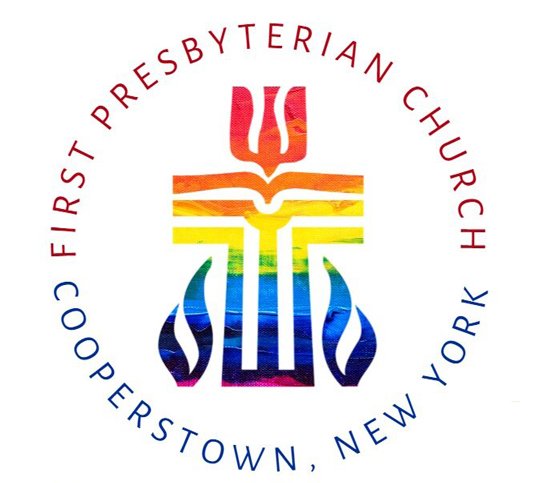Service Livestream
In the event of technical difficulty/unable to view the video below, first, please refresh the browser at 10 AM. If you are still unable to see the live stream please click here to view the service via YouTube
-
January 19, 2025, 10:00 a.m.
Second Sunday after Epiphany
Preaching: Rev. Jess Lambert
Sermon: “The Giver and the Gift Are One”
Liturgist: Hetty Adams
Bulletin: https://www.cooppres.org/s/January-19-2025-Jess-Lambert.pdf
YouTube: https://youtube.com/live/v41kWVfLwiE
Scripture:
Psalm 36:5-10
1 Corinthians 12:1-11
John 2:1-11
Cover Photo:
Please contribute to our ministry and good works in this community and around the world
https://www.CoopPres.org/donate
Feel free to submit Joys and Concerns prior to the live stream at
https://www.cooppres.org/joysconcerns
We will make every effort to read them during the service.
Our Website: https://www.CoopPres.org
Permission to reprint, podcast, and/or stream the music in this service obtained from OneLicense.com with license #A-724436. All rights reserved.
Music:
PRELUDE “Elegy” Samuel Coleridge-Taylor (1875-1912)
Setting published in 2008 by GIA Publications, Inc. All Rights Reserved
HYMN #395 “Blessed Jesus, at Your Word” LIEBSTER JESU
© 2013 Westminster John Knox Press All rights reserved.
MUSICAL OFFERING “A Universal Blessing” Alice Parker (1925-2023)
© Copyright 2013 by E.C. Schirmer Music Company, Inc., a division of ECS Publishing
All rights reserved.
The Chancel Choir
HYMN ##156 “Sing of God Made Manifest” SALZBURG
Text © 1990 Hope Publishing Company, Carol Stream, IL 60188.
All rights reserved. Used by permission.
©2013 Westminster John Knox Press All rights reserved.
OFFERTORY “Retrospection” Florence Beatrice Price (1887-1953)
Copyright © unknown. Published in 2008 by GIA Publications, Inc. All Rights Reserved.
Peter Deysenroth, organist
HYMN #339 “Lift Every Voice and Sing” LIFT EVERY VOICE
© 2013 Westminster John Knox Press All rights reserved.
VOLUNTARY “Melody” Samuel Coleridge-Taylor (1875-1912)
Setting published in 2008 by GIA Publications, Inc. All Rights Reserved.
Musical Note:
In honor of The Rev. Dr. Martin Luther King, Jr. (January 15, 1929 – April 4, 1968), this morning’s organ music is from a collection of organ music, “King of Kings: Organ Music of Black Composers, Past and Present, Volume I.” Samuel Coleridge-Taylor was an English composer, conductor and political activist who fought against race prejudice with his compositions. Named after the poet Samuel Taylor Coleridge, he was born in Holborn, a district in central London to an English mother and a father originally from Sierra Leone. He liked to be identified as Anglo-African, and, owing to his musical success, was later referred to by white New York musicians as the Black or African Mahler. Taylor’s classical compositions were heavily influenced by traditional African music, making him one of the most progressive writers of his time. His greatest success was the cantata trilogy, The Song of Hiawatha, which was widely performed in England and which, at the time, was rivaled only by Handel’s Messiah and Mendelssohn’s Elijah in popularity. His work across music and politics was so well received that in 1904 he was invited by President Theodore Roosevelt to visit the White House – a bold statement and a positive step forward for African Americans.
Florence Beatrice Price, who composed this morning’s Offertory, was the first noted African American female composer to gain national status. Born in Little Rock, Arkansas, Price attended New England Conservatory of Music in Boston, Massachusetts and within three years attained degrees in piano and organ performance.
She went on to have a successful musical career composing pieces for organ, piano, and orchestra as well as many solo vocal pieces that some of the Glimmerglass Young Artists Program vocalists have offered in our church during the summer. In 1932 she won first prize in the Wanamaker Competition with her Symphony in E minor and as a result, became the first female composer of African descent to have a symphonic work performed by a major national symphony orchestra. Although this premiere by the Chicago Symphony Orchestra in 1933 brought instant recognition and fame to her, she would “continue to wage an uphill battle – a battle much larger than any war that pure talent and musical skill could win. It was a battle in which the nation was embroiled – a dangerous mélange of segregation, Jim Crow laws, entrenched racism, and sexism.” (Women’s Voices for Change, March 8, 2013) Regardless, Price eventually received praise for the blending of both her traditional western education and African American culture in her music, and was seen as a pioneer for both her gender and race.
~Peter A. Deysenroth, organist
Please contribute to our ministry and good works in this community and around the world

